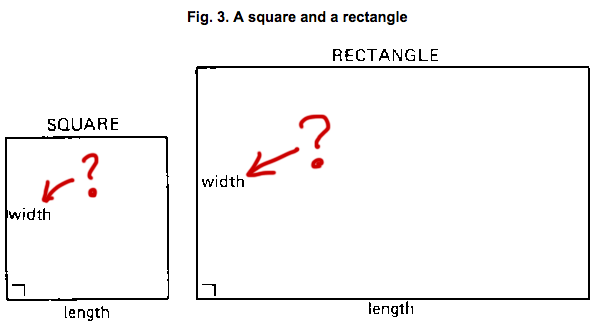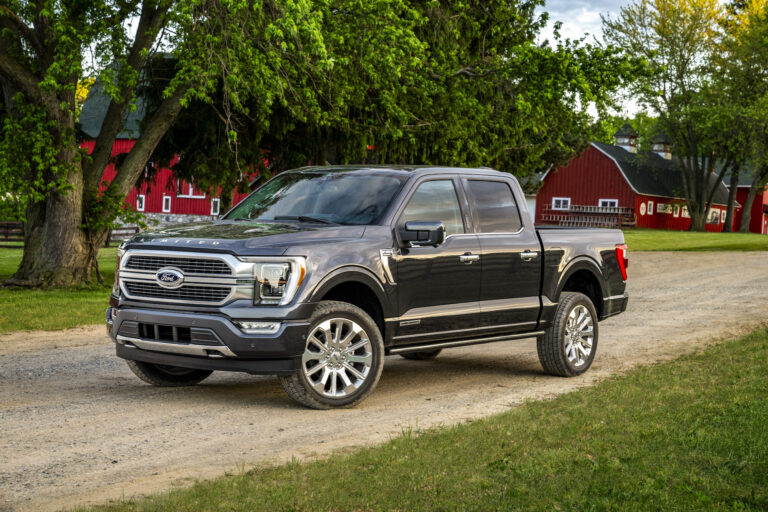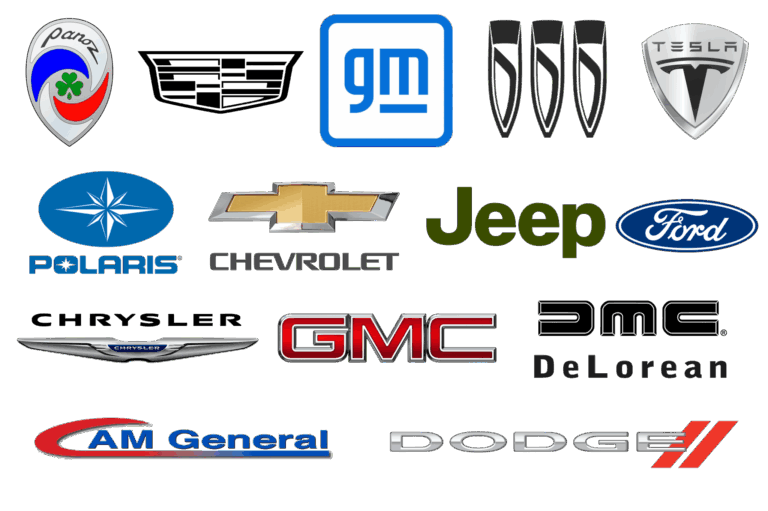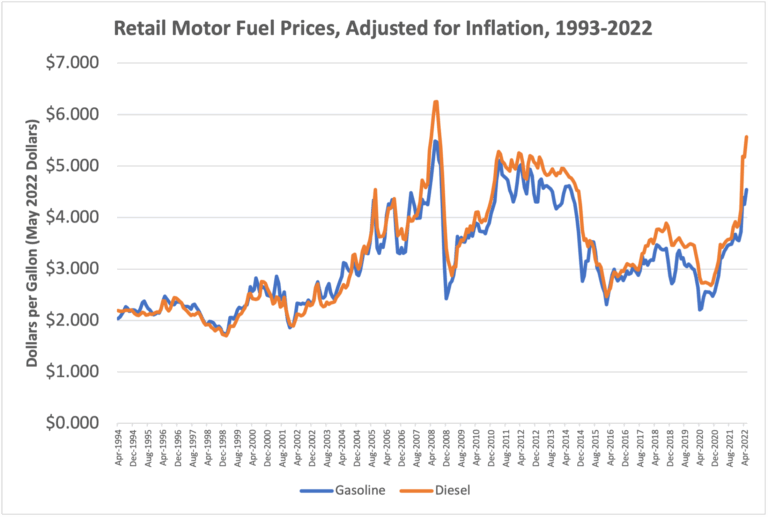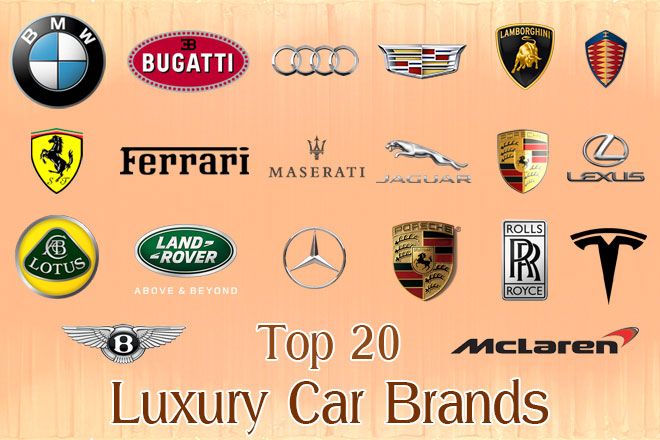Popular Car Tire Brands: Your Ultimate Guide to Choosing the Right Rubber
Popular Car Tire Brands: Your Ultimate Guide to Choosing the Right Rubber cars.truckstrend.com
The tires on your car are arguably the most critical component for your safety and driving experience. They are the only points of contact between your vehicle and the road, directly influencing everything from braking and handling to fuel efficiency and ride comfort. While often overlooked, choosing the right set of tires from a reputable brand can significantly enhance your vehicle’s performance and ensure your peace of mind on every journey.
In a market flooded with options, understanding the landscape of popular car tire brands is essential. These brands have earned their popularity through decades of innovation, rigorous testing, and a consistent commitment to quality and performance. This comprehensive guide will delve into what makes these brands stand out, help you navigate the choices, and provide practical advice for making an informed decision.
Popular Car Tire Brands: Your Ultimate Guide to Choosing the Right Rubber
The Pillars of Tire Excellence: What Makes a Brand Popular?
Popular tire brands aren’t just household names; they are industry leaders who consistently deliver on several key fronts:
- Innovation & Technology: Leading brands invest heavily in research and development. This includes developing advanced rubber compounds for better grip and longevity, designing sophisticated tread patterns for improved water dispersion and noise reduction, and pioneering technologies like run-flat capabilities or self-sealing tires.
- Performance & Safety: This is paramount. Popular brands are renowned for their tires’ superior grip in various conditions (wet, dry, snow), shorter braking distances, precise handling, and stability at speed. They adhere to stringent safety standards and often exceed them.
- Durability & Longevity: Consumers expect their tires to last. Top brands utilize robust construction and high-quality materials to ensure excellent treadwear life, often backed by impressive mileage warranties.
- Comfort & Noise Reduction: A quiet and smooth ride significantly enhances the driving experience. Popular brands employ advanced designs and materials to minimize road noise and absorb vibrations, leading to a more comfortable journey.
- Value & Price Point: While premium brands may command higher prices, they often justify this with superior performance, longer lifespan, and better fuel efficiency, ultimately offering greater long-term value. Mid-range and value brands also gain popularity by offering a strong balance of quality and affordability.
- Reputation & Trust: Decades of consistent performance, positive customer reviews, and often, involvement in motorsport, build a brand’s reputation and foster consumer trust. This historical reliability is a major draw for buyers.

Spotlight on Leading Car Tire Brands
Let’s explore some of the most popular and highly-regarded tire brands globally, understanding what each is best known for:
- Michelin: A French giant, Michelin is synonymous with premium quality, innovation, and exceptional performance. Known for their cutting-edge technology, longevity, and comfortable ride, Michelin tires are often original equipment (OE) on luxury and high-performance vehicles. They excel in all categories, from high-performance summer tires to long-lasting all-season options and fuel-efficient designs.
- Goodyear: An American icon with a rich history, Goodyear offers a vast range of tires known for their all-around performance, durability, and strong heritage in racing and aviation. They are a popular choice for everything from passenger cars and SUVs to trucks, offering reliable grip, good tread life, and a comfortable ride across their diverse product lines.
- Bridgestone: The world’s largest tire manufacturer, Bridgestone (Japanese) is recognized for its strong performance, safety features, and fuel-efficient technologies (like their Ecopia line). They are a major OE supplier and have a significant presence in motorsport, reflecting their commitment to cutting-edge technology and reliable performance in various driving conditions.
- Pirelli: An Italian brand deeply rooted in motorsport, Pirelli is renowned for its high-performance and ultra-high-performance tires designed for sports cars, luxury vehicles, and SUVs. They offer exceptional grip, precise handling, and a sporty feel, often being the OE choice for premium European car manufacturers.
- Continental: A German engineering powerhouse, Continental tires are celebrated for their unwavering commitment to safety, superior braking performance, and precise handling. They are a leading OE supplier for European car brands and offer a wide range of tires, from comfortable touring options to high-performance summer and reliable winter tires.
- BFGoodrich: A subsidiary of Michelin, BFGoodrich has carved out a niche for itself, particularly in the truck, SUV, and off-road tire segments. Known for their rugged durability, aggressive styling, and exceptional traction in challenging conditions, they are a favorite among off-road enthusiasts and truck owners.
- Cooper Tires: An American brand that emphasizes value and reliability, Cooper Tires offers a comprehensive range of tires for passenger cars, SUVs, and trucks. They are a popular choice for consumers looking for a good balance of performance, durability, and affordability, often excelling in the all-season and light truck categories.
- Yokohama: A Japanese brand known for its blend of performance and environmental responsibility, Yokohama offers a diverse lineup of tires. They are popular for passenger cars, sports cars, and SUVs, providing good grip, responsive handling, and increasingly, fuel-efficient and eco-friendly options.
- Dunlop: Another brand with a strong motorsport heritage (now part of Goodyear), Dunlop is known for producing tires that offer sporty performance and reliable quality. They cater to drivers who appreciate responsive handling and a dynamic driving experience, with options for passenger cars and performance vehicles.
Choosing the Right Tire Brand for You: Key Considerations
Selecting the perfect tire isn’t just about picking a popular brand; it’s about matching the brand’s strengths with your specific needs and driving habits. Consider the following:
- Vehicle Type: A sedan, SUV, sports car, or pickup truck will each have different tire requirements in terms of load capacity, speed rating, and performance characteristics.
- Driving Style & Habits: Are you an aggressive driver, a daily commuter, or do you frequently travel off-road? Your driving style will influence the type of tire (e.g., performance, touring, all-terrain) you need.
- Climate & Road Conditions: Live in a region with distinct seasons? You’ll need to decide between all-season tires (versatile but compromised in extreme conditions), dedicated summer tires (optimal warm-weather performance), or winter tires (essential for snow and ice).
- Budget: While premium brands offer top-tier performance, mid-range and value brands provide excellent alternatives. Balance initial cost with long-term benefits like fuel efficiency and tread life.
- Treadwear Warranty: This indicates the estimated lifespan of the tire in miles. A higher number generally means a longer-lasting tire.
- Load Index & Speed Rating: Always ensure the new tires match or exceed your vehicle’s manufacturer-recommended load index and speed rating for safety and optimal performance.
- Noise & Comfort: If a quiet and smooth ride is a priority, look for tires designed with comfort-enhancing features and good noise reduction.
- Fuel Efficiency: Tires with lower rolling resistance can contribute to better fuel economy. Look for specific "eco" or "fuel-efficient" lines from brands.
Practical Advice: Maximizing Your Tire Investment
Once you’ve chosen your tires, proper care is crucial to maximize their lifespan and performance:
- Regular Tire Pressure Checks: Under-inflated tires reduce fuel efficiency, wear unevenly, and pose a safety risk. Check your tire pressure monthly, including the spare, according to your vehicle’s recommended PSI (found on a sticker in the door jamb or owner’s manual).
- Tire Rotations: Rotate your tires every 5,000 to 8,000 miles to ensure even wear across all four tires, extending their lifespan.
- Wheel Balancing & Alignment: If you notice vibrations or your vehicle pulling to one side, have your wheels balanced and alignment checked by a professional. This prevents uneven wear and improves handling.
- Visual Inspections: Regularly inspect your tires for any signs of damage (cuts, bulges, punctures) or uneven wear patterns. Check tread depth – once it reaches 2/32nds of an inch (indicated by wear bars), tires must be replaced.
- Understand Tire Codes: Learn to read the numbers and letters on your tire’s sidewall (e.g., P205/55R16 91V). These indicate tire type, width, aspect ratio, construction, rim diameter, load index, and speed rating.
- Know When to Replace: Beyond tread depth, tires should generally be replaced after 6-10 years, regardless of mileage, as the rubber compounds can degrade over time, affecting performance and safety.
Challenges & Solutions in Tire Selection
- Overwhelm of Choices: The sheer number of options can be daunting. Solution: Narrow down your choices by first considering your vehicle type, driving needs, and budget. Read professional reviews and customer feedback specific to tire models. Don’t hesitate to consult with reputable tire dealers for personalized recommendations.
- Counterfeit or Substandard Tires: Purchasing from unofficial sources can lead to unsafe or low-quality products. Solution: Always buy tires from authorized dealerships, well-known tire retailers, or trusted online platforms. Be wary of deals that seem too good to be true.
- Balancing Budget vs. Quality: It’s tempting to opt for the cheapest tires. Solution: While budget is a factor, recognize that tires are a safety investment. Popular, reputable brands often provide better performance, longer life, and superior safety features, offering better long-term value even if the upfront cost is higher.
- Mixing Tire Brands/Types: Ideally, all four tires on your vehicle should be of the same brand, model, and tread pattern. Solution: If you must replace only two tires, ensure they are identical to each other and installed on the same axle. Never mix radial and bias-ply tires. For AWD vehicles, it’s often critical to replace all four tires simultaneously to prevent damage to the drivetrain.
Estimated Price Table of Popular Car Tire Brands
Please note: Prices are highly variable based on tire size, type (all-season, summer, winter, performance, etc.), specific model, retailer, and geographical location. The ranges provided below are general estimates for common passenger vehicle tires and should be used as a guide only. Always check current prices with multiple retailers for accurate quotes.
| Brand | Typical Price Category | Estimated Price Range Per Tire (USD) | Key Strengths | Target User |
|---|---|---|---|---|
| Michelin | Premium | $150 – $400+ | Performance, longevity, innovation, comfort | Luxury, performance, daily drivers seeking best |
| Goodyear | Premium/Mid-Range | $120 – $350+ | All-around performance, durability, heritage | Broad appeal, SUVs, trucks, sedans |
| Bridgestone | Premium/Mid-Range | $130 – $380+ | Performance, safety, fuel efficiency, OE | Sports cars, sedans, SUVs, eco-conscious |
| Pirelli | Premium | $160 – $450+ | High-performance, luxury, motorsport | Sports cars, luxury vehicles, enthusiasts |
| Continental | Premium/Mid-Range | $120 – $350+ | Safety, braking, German engineering, OE | Sedans, luxury, performance, safety-focused |
| BFGoodrich | Mid-Range | $100 – $300+ | Off-road, truck/SUV, durability | Truck/SUV owners, off-road enthusiasts |
| Cooper Tires | Mid-Range/Value | $80 – $250+ | Value, truck/SUV, all-season | Budget-conscious, truck/SUV owners |
| Yokohama | Mid-Range | $90 – $280+ | Performance, environmental, value | Sports cars, sedans, environmental-aware |
| Dunlop | Mid-Range | $100 – $300+ | Sporty performance, quality | Sporty sedans, coupes, performance drivers |
Frequently Asked Questions (FAQ) about Car Tires
Q1: How often should I replace my tires?
A1: Generally, tires should be replaced when the tread depth reaches 2/32nds of an inch (indicated by built-in wear bars). Regardless of tread, most manufacturers recommend replacing tires after 6 years, and no tire should be used beyond 10 years from its manufacture date (found on the sidewall, typically a four-digit DOT code indicating week and year).
Q2: What do the numbers and letters on the tire sidewall mean?
A2: They provide crucial information: e.g., "P205/55R16 91V".
- P: Passenger car tire.
- 205: Tire width in millimeters.
- 55: Aspect ratio (sidewall height as a percentage of width).
- R: Radial construction.
- 16: Rim diameter in inches.
- 91: Load Index (maximum weight capacity).
- V: Speed Rating (maximum safe speed).
- DOT Code: Includes the manufacturing date (e.g., 2322 means 23rd week of 2022).
Q3: Are cheaper tires always worse?
A3: Not necessarily "worse," but often they offer compromises. Cheaper tires may have shorter tread life, less grip in wet conditions, more road noise, or lower fuel efficiency compared to premium brands. They can be suitable for budget-conscious drivers with low mileage or less demanding driving conditions, but investing in a reputable mid-range or premium brand generally provides better safety, performance, and longevity.
Q4: Should I buy all-season, summer, or winter tires?
A4:
- All-season tires: A versatile compromise for mild climates, offering decent performance in light snow and moderate temperatures.
- Summer tires: Designed for optimal grip and handling in warm, dry, and wet conditions above 45°F (7°C). They perform poorly in cold or snowy conditions.
- Winter tires: Essential for cold climates (below 45°F/7°C), snow, and ice. They use specialized rubber compounds and tread patterns for superior traction and braking in winter conditions.
The best choice depends on your local climate and driving needs. For true winter conditions, dedicated winter tires are highly recommended.
Q5: How important is tire pressure?
A5: Extremely important. Correct tire pressure ensures even tread wear, optimal fuel efficiency, proper handling, and maximum safety. Under-inflated tires can lead to overheating, blowouts, and poor handling, while over-inflated tires can lead to a harsh ride, reduced grip, and premature wear in the center of the tread.
Q6: Can I mix tire brands on my car?
A6: It is generally recommended to have four identical tires (same brand, model, and tread pattern) for optimal performance and safety, especially on vehicles with ABS, traction control, or all-wheel drive systems. If you must replace only two, ensure they are the same brand and model, and place them on the same axle (typically the rear axle for FWD cars, front for RWD, or as recommended by your vehicle manufacturer). Never mix radial and bias-ply tires.
Conclusion
Choosing the right car tires is a decision that directly impacts your safety, your vehicle’s performance, and your driving comfort. Popular car tire brands have earned their esteemed positions through relentless innovation, rigorous quality control, and a proven track record of delivering reliable and high-performing products. By understanding the strengths of leading brands like Michelin, Goodyear, Bridgestone, and others, and by considering your specific vehicle needs, driving habits, and climate, you can make an informed choice that offers the best value and peace of mind. Remember, your tires are your vehicle’s only connection to the road – investing wisely in quality rubber is an investment in your safety and driving enjoyment.
